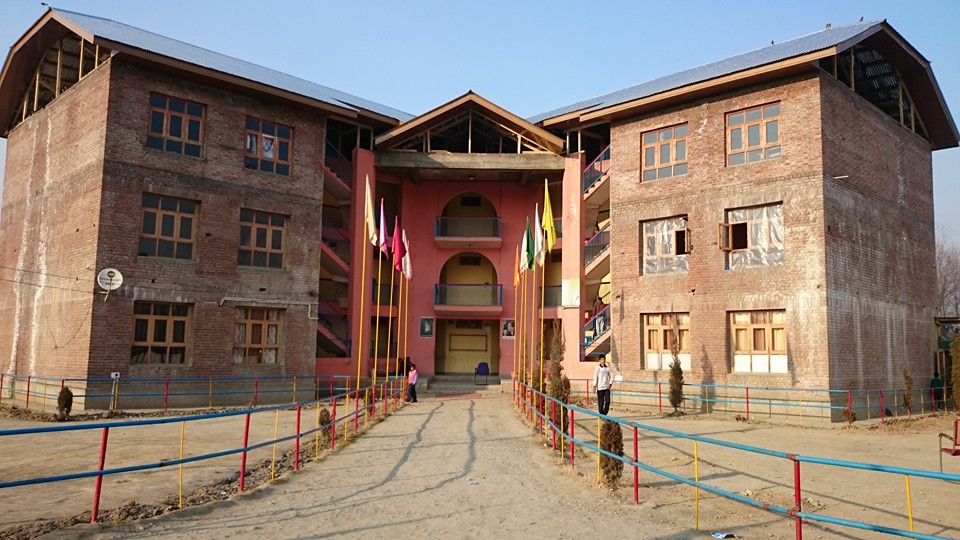A Call for Academic Awakening: Building Our Future Brick by Brick
By: Javid Amin | Srinagar | 26 June 2025
For too long, Jammu and Kashmir has sent its best and brightest youth out of the region in search of professional degrees and opportunities. This intellectual exodus has drained our human capital and diluted our collective progress. But now, more than ever, it’s time to rewrite the script.
The time has come for the region to take bold strides toward academic self-reliance—and that begins with the establishment of private medical and engineering colleges across both the Valley and Jammu region. This is not a distant dream or a policy wish—it is a strategic necessity and moral imperative.
Why Academic Self-Reliance is the Need of the Hour
01. Brain Drain and Its Cost
Every year, thousands of young students from Kashmir and Jammu move to other states—Delhi, Maharashtra, Punjab, Karnataka—seeking seats in medical and engineering colleges. This isn’t just a logistical burden on families; it’s a systemic failure to retain talent.
Our youth leave not because they want to, but because opportunities at home are scarce. This gap can be filled by establishing world-class educational institutions locally—that offer quality, integrity, and innovation.
The emotional, financial, and logistical challenges of sending a child far from home weigh heavily on families. Local institutions would ease this burden, and allow youth to thrive without uprooting their lives.
02. Economic Multiplier Effect
The education sector isn’t just about learning—it’s about livelihoods, entrepreneurship, and regional development. Each medical or engineering college has the potential to generate hundreds of direct and indirect jobs—from faculty and research staff to hospitality, transport, and local commerce.
A single academic institution becomes an economic microcosm: bookstores, hostels, canteens, IT support, and even healthcare services mushroom around it. The effect is cyclical, helping generate local employment and stimulating regional economies.
03. Social Equity and Access
Rural and lower-income families often can’t afford to send their children to distant cities. Establishing affordable, accessible private institutions in various districts will democratize higher education and reduce educational inequality.
When education becomes regionally accessible, it becomes more inclusive. Girls, differently-abled students, and economically weaker sections benefit disproportionately when colleges exist within reach.
What Kind of Institutions Do We Need?
Not all colleges are created equal—and Jammu & Kashmir cannot afford mediocrity. We need institutions that are:
- Locally owned and governed
- Nationally accredited (through bodies like NMC, AICTE, NAAC)
- Integrated with innovation and research ecosystems
- Collaborative with hospitals, industries, and tech incubators
- Inclusive in access but rigorous in academic standards
These institutions must mirror the excellence of AIIMS, IITs, and NITs, not just in branding but in substance.
The goal is not just to build campuses, but to cultivate centers of excellence—places where ethics, inquiry, and innovation go hand in hand.
The Role of Local Investors and Entrepreneurs
While hotel chains, real estate, and tourism ventures have received significant attention from investors, the education sector remains underexplored. We urge Kashmir and Jammu’s successful entrepreneurs to consider long-term investments in knowledge infrastructure:
- Teaching hospitals with research wings
- Engineering colleges linked to local innovation hubs
- Medical training centres for rural health outreach
- Technology parks connected to academia
This is not just philanthropy. It’s strategic nation-building with economic returns.
Private colleges in other Indian states have shown how community-led ownership results in innovation and loyalty. The same can happen in J&K, with proper regulation and vision.
Setting Benchmarks for Quality
To win the trust of students and parents, these new institutions must:
- Have transparent admission processes
- Employ highly qualified, full-time faculty
- Maintain state-of-the-art labs and learning facilities
- Publish regular academic audits
- Enable collaborative research and internships
Quality isn’t an optional add-on. It’s the backbone of credibility. By aligning with national and international benchmarks, J&K can become a credible destination for education seekers beyond its borders.
Empowering Youth, Right at Home
Building colleges in Kashmir and Jammu is not just about infrastructure—it’s about hope, pride, and potential. Students who study close to home:
- Stay connected to their culture and families
- Are more likely to serve their communities
- Can avoid emotional and financial strain
And perhaps most importantly, they see their own region as a place of growth and opportunity.
When students believe they can thrive where they were born, they also start to invest back in their communities—as doctors, engineers, researchers, mentors, and change-makers.
Education as a Tool for Peace and Progress
Education is also the most powerful tool against radicalization, misinformation, and marginalization. In a region often misunderstood and politically sensitive, academic institutions can serve as:
- Spaces for dialogue and inclusion
- Hubs of cross-regional collaboration
- Gateways to global exposure
Classrooms can become places where the future of Kashmir and Jammu is imagined not through conflict, but through collaboration, creativity, and shared aspirations.
A Policy Blueprint for Change
For this vision to materialize, we need coordinated efforts from:
- UT and State Governments (to offer land, incentives, and policy support)
- Private sector (to invest and innovate)
- Regulatory bodies (to ensure quality and compliance)
- Civil society (to hold institutions accountable)
This is not a one-off project. It’s a mission for the next decade.
A dedicated Education Investment Board for Jammu & Kashmir could streamline approvals, incentivize innovation, and attract diaspora investors.
Bottom-Line: Invest in Minds, Not Just Markets
Jammu and Kashmir stands at a historic crossroads. Will we continue to outsource our futures to others, or will we rise and build institutions of our own, for our own, by our own?
Let’s stop waiting for Delhi or Dehradun to give us engineers and doctors. Let’s grow them right here, in our towns and villages.
The youth of Jammu & Kashmir deserve more than just opportunities. They deserve the infrastructure to chase their dreams without leaving their soil.
Let this be our call for an academic awakening. Let this be our legacy. Let this be our revolution.




